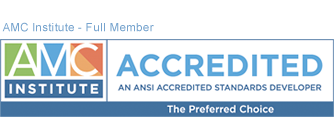Another in a series of articles related to association management selected from our reading list by:
Robert O. Patterson, JD
CEO/ Principal
The Center for Association Resources, Inc.
How lack of management skills and experience are hurting the non-profit organizations.
Non-profit organizations or NGOs (Non-Governmental Organizations) as they are often known internationally are truly feel good places to work. They attract dedicated staff and address serious issues in society that often impact the lives of the neediest populations. Sounds great! So where is the problem? The highly technical and extremely caring personnel in non-profits are often missing professional management skills at the top levels. This leads to the lack of efficient use of resources and an inability to quickly and decisively take action. There is a frequent need for total consensus on decisions. This, along with the strong personal feelings towards the program beneficiaries, often leads to slow and inappropriate management decisions. Technical experts and community program managers are not often trained or experienced in operational management. This leads to a host of internal problems which in turn leads to less program success notwithstanding the great staff.
These non-profit staff often become the eventual managers and heads of the organizations. They sometimes are unable to let go of their technical biases or their love of the communities and activities. This can in turn lead to management and resource choices which are not based on clear management principles and which are not best for the long term goals and success of the organization. Working from the heart is wonderful but in the end someone at the top needs to look at the total operation and make wise decisions even when some programs are hurt or when some services are modified or cut. The current global state of resource availability is not optimal so the organization must now prove to the donors that their funds are used to the maximum effectiveness. Management professionals can help to ensure this happens and can present the cases more clearly for potential donors who now are much more careful before giving.
This is also a time when less available funding pushes towards a stronger need to increase collaboration with other non-profits as well as government offices and the private sector. Again the management professional is more able to make the compromises that have to occur in order to truly build lasting partnerships. This carries over to developing partnership contracts and maintaining them over time. A non-profit does not have to lose its identity or its core values to do this but it has to make some tough decisions along the way. Most non-profit staff are not good at hard decisions or at organizational management. They are excellent at what they do in terms of technical activities and community mobilization. They are willing to work untold hours. However, this is no longer enough in the new more competitive world that the non-profits now inhabit. Putting professional management at the top is one solution that can enable the non-profit to optimize staff and funds to the greatest benefit of the beneficiaries.
management, staff, donors, fundraising, partnerships,operations,The Center for Association Resources







